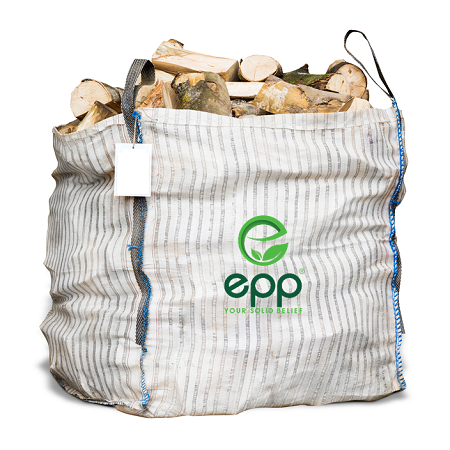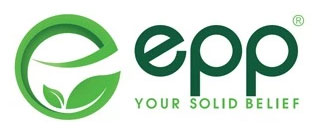FIBC bags (bulk bags, big bags) are popular industrial packaging solutions, therefore, the total number of global products used annually is huge. As a result, appropriate waste management measures such as reuse and recycling should be applied to minimize the environmental impact and save minimal costs in the industry. Read on with EPP to learn the principles when reusing and recycling this product.
Responsibility for reusing bulk bags
Responsibility is an important factor in reusing your Jumbo bag. You can completely reuse the bags until the fabric is torn or damaged. However, used big bags can cause damage to your product.

Responsibility is an important factor in reusing your Jumbo bag. You can completely reuse the bags until the fabric is torn or damaged
Moreover, there is a possibility of injury to the workers handling super sacks. There can even be an accident during loading, unloading, or transporting FIBC tubular bags.
Safety factor and safe working load
It is important to consider the Safety Factor (SF) and Safe Working Load (SWL) of your bulk big bag before reusing it. Single-use Jumbo Bags (FIBC) with an SF of 5:1 can hold up to 5 times its SWL. These bags are load-bearing only once, therefore, they can be damaged if reused. Reusable big bags should essentially have an SF of 6:1. However, it is advisable to double-check the bulk bags before reusing them.
Contamination checking
For obvious reasons, it is not safe to reuse Jumbo bags in many cases. Big bags of chemicals should not be reused for storing or transporting goods such as agricultural products to avoid contamination.

These bags are load-bearing only once, therefore, they can be damaged if reused
Big bag 1 ton 1.5 ton should be thoroughly inspected for damage or signs of mold before reuse. Of course, proper cleaning and recovery measures need to be taken before these bags can be qualified for reusing.
Recycling bulk bags
When bulk bags have reached the end of their life, what do you do with them? Throw them in the landfill? Or do you take sustainable measures to reuse these bags?
Because FIBC bags are made from virgin polypropylene, they can be recycled to create plastic products. Even jumbo bags (FIBCs) are used for potentially contaminating products such as abrasives, chemicals, building materials, fertilizers, etc. can still be reused, as long as they are segregated into the appropriate recycling categories.

Because FIBC bags are made from virgin polypropylene, they can be recycled to create plastic products
As a leading manufacturer and supplier of FIBC bags, EPP operates responsibly in handling substandard bags in the production and recycling of jumbo bags, paying attention to the sustainable production of transport packaging for many industries.
EPP and readers have just learned about the principles of FIBC bag recycling. If you are looking for a sturdy, safe and flexible packaging solution for your industry, then a Bulk bag is well worth a try. If you have a need to use Jumbo bags, please contact EPP Vietnam Co., Ltd at hotline 0986 002 888 for the most detailed advice.
🌐Website:https://epp.vn// https://eppvietnam.trustpass.alibaba.com/
📲Ms. Jennifer: +84 962 055 998 - sales02@epp.vn
📲Ms. Charlie: +84 986 002 888 - sales@epp.vn



